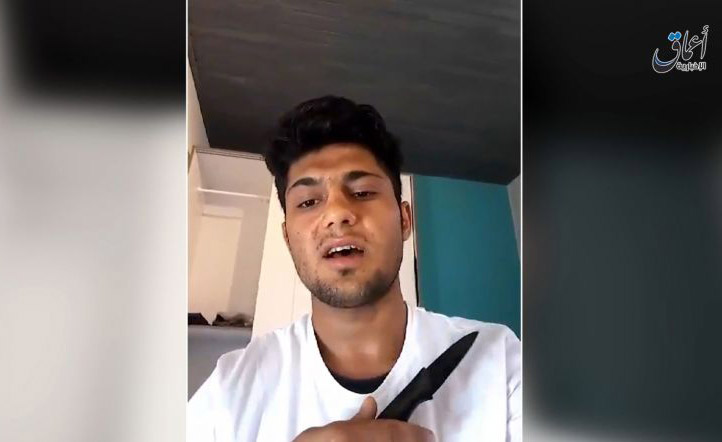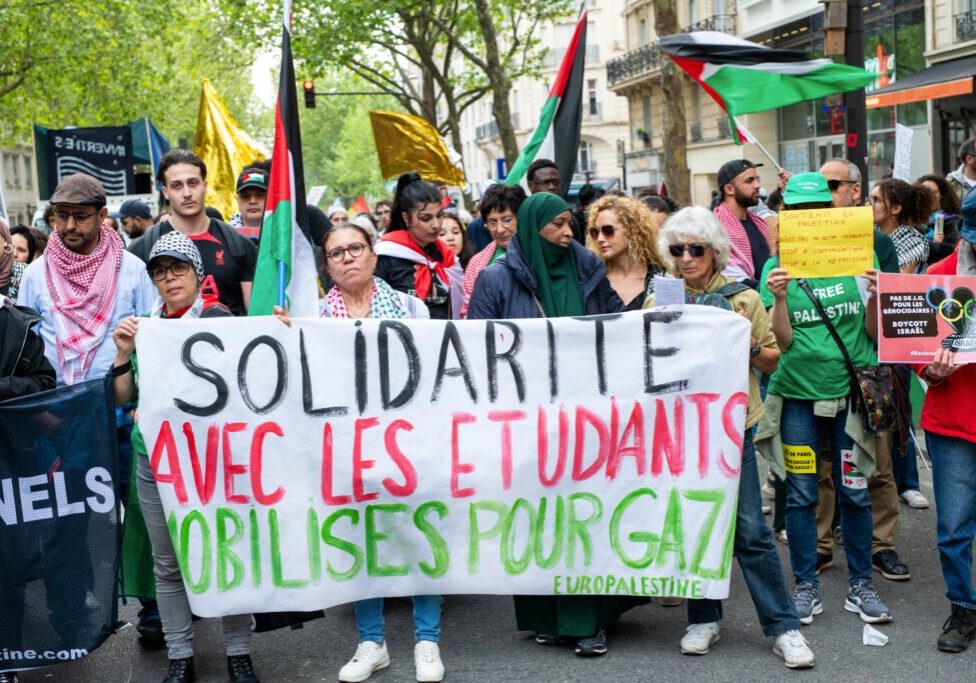Australia/Israel Review
Scribblings: How to Handle a Martyrdom-Seeking Stabber
Aug 5, 2016 | Tzvi Fleischer

Tzvi Fleischer
What happens when a terrorist, armed with a knife or other sharp implement, sets out to stab random people or security forces, and in the process achieve martyrdom for him or herself?
Take Riaz Khan Ahmadzai, the teenage Afghan refugee who, on July 18, stabbed five people with a knife and a hatchet on a train near Würzburg in Germany in what the Bavarian authorities said was probably an “Islamist attack.” He was shot dead by German police special forces after he lunged at them with a hatchet.
What about the two men who murdered a priest in his church near Rouen, France with knives on July 26? They were also shot dead, by French police.
The same outcome has been repeated in numerous cases around the world in recent years: Zale Thompson, the Muslim convert who, on Oct. 23, 2014, attacked four police officers in New York with a hatchet; Faisal Mohammad, a stabber who injured four people with a hunting knife on the campus of the University of California, Merced on November 4, 2015; even Australian Abdul Numan Haider, the 18-year-old from Melbourne who stabbed two officers from the Joint Counter-Terrorism team outside a police station on Sept. 23, 2014. All were shot dead by security forces.
What do all these stories tell us? That when violent extremists carry out an attack with a stabbing weapon – almost always intent on achieving “martyrdom” in the process – police around the world have little choice but to shoot them. This is the case in Germany, in France, in the US, in Britain and Australia.
There are some exceptions – British police were able to use a stun gun to subdue Muhaydin Mire after he stabbed two people at a London Underground station on Dec. 7, 2015 and the two men who beheaded British soldier Lee Rigby on a London street in May 2013 were shot but survived – but the general pattern is that such terrorists usually end up dead. And virtually everyone understands this is what happens if someone attacks civilians or security forces with a knife intending to commit murder and expecting to end up dead – “martyred” – him or herself.
Except in the case of Israel. Israel has been accused of “extrajudicial killings” by Amnesty International, Defence of Children International, some UN officials, and the Swedish Foreign Minister – not to mention numerous pro-Palestinian activists and commentators – as its security forces confronted numerous Palestinians armed with knives and intent on both murder and “martyrdom” over the past eight months. Israeli forces usually ended up doing exactly what the German, French, American, British and Australian counterparts did in similar situations, shooting the attackers to protect either their own lives or the lives of civilians. Except in Israel’s case, it is condemned.
Moreover, this is despite the fact that statistics show that Israel is actually succeeding in keeping many stabbers alive.
According to the recent report by the Quartet, there have been over 250 serious attempted terror attacks by Palestinians on Israelis since last October. Moreover, that number includes not only stabbings but also at least 60 shooting incidents and dozens of vehicle attacks (but not including less serious incidents like molotov cocktail attacks) – where the attacker would be even more likely to end up shot.
According to the Quartet, those 250 attacks left 140 Palestinian attackers dead – along with 37 Israeli, American and other victims. Once you deduct the perpetrators killed in vehicle and shooting attacks, some with multiple perpetrators, this indicates that around half of the stabbing perpetrators survived. Based on the very limited sample available, this suggests that Israeli security forces might actually compare favourably with their German or French or American or Australian counterparts in keeping perpetrators alive when faced with martyrdom-seeking stabbing attacks (leaving aside the one incident in Hebron on March 24, where an Israeli soldier shot dead a disarmed Palestinian attacker – for which he is now rightly being tried).
But of course, it is only Israel that it is demanded must somehow find a way to keep these attackers alive, even though other security forces have found no alternative to shooting them either. Just another example of the gross double standards which are so often applied to Israel.
Al-Qaeda in Iran
The US Treasury Department just added three al-Qaeda leaders to the list of Specially Designated Global Terrorists it maintains. That’s not unusual. What is unusual is where two of the three are based – they are working out of Iran.
According to Treasury, Abu Bakr Muhammad Muhammad Ghumayn is “a senior al-Qaida leader who has served in several financial, communications, and logistical roles for the group” and who has “assumed control of the financing and organisation of al-Qaida members located in Iran” as of 2015. Meanwhile, Yisra Muhammad Ibrahim Bayumi has been based in Iran since 2014, was “involved in freeing al-Qaida members in Iran,” and also coordinated al-Qaeda fundraising activities from his Iranian safe-haven.
Some people think Teheran would be a good ally to have against ISIS – being supposedly a key enemy of Sunni Islamist extremism. The presence of Ghumayn and Bayumi shows how misguided such thinking is.
Iran has long been happy to work with elements of al-Qaeda – and facilitate their activities – when it serves its interests. Indeed, in March, a US court found that Iranian proxies had allegedly facilitated the travel of several of the Sept. 11, 2001 hijackers.
Nor has that relationship changed, even today, as the activities of Ghumayn and Bayumi in Iran, clearly tolerated by Iranian authorities, demonstrate.
The bottom line is Iran is a terrorist state – the world’s foremost terror-sponsoring state according to most reputable agencies. It can never be an effective ally against ISIS or any other terror group.
Tags: Europe






